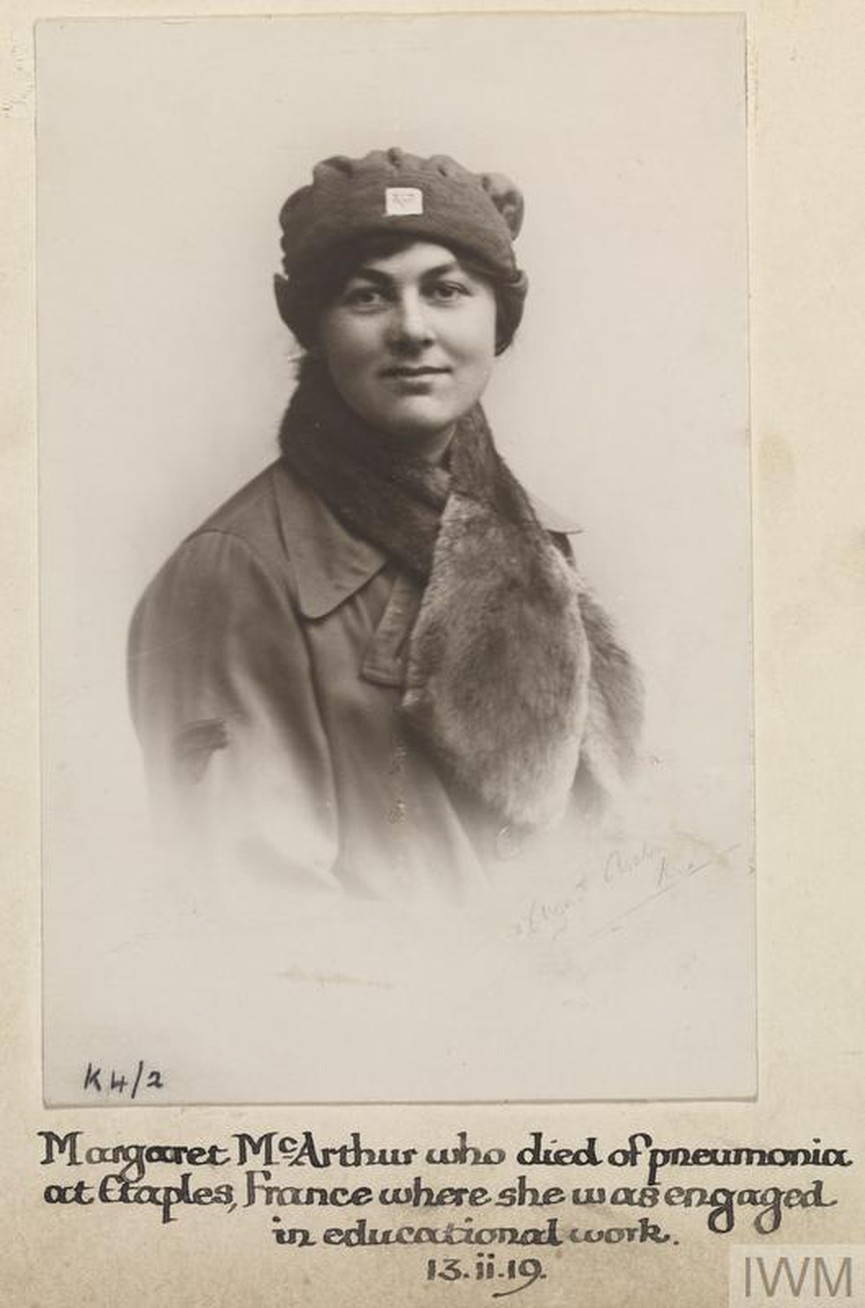
Marguerite was born on the 25th March 1892 in Kensington London. From an early age she had a love of books. She attended Norland Place School in Notting Hill. It was soon apparent that she was academically gifted. She also excelled at sport, especially Hockey. During the war years she became Honorary Secretary of the Norland School Old Girls Association. Marguerite left school in 1908 and went on to higher education attaining First Class honours at the Cambridge Higher Local with a distinction in history. In 1910 she went to Dresden in Germany to study culminating in First Class Honours again with a distinction in spoken German. She was also fluent in French.
In January 1911 went to Canada in what was a combines holiday/studying venture. October of that year would see her entering Clough Hall Newham College Cambridge to study further in the German language, again attaining First Class honours.
At the outbreak of war Marguerite was employed by the Young Men’s Christian Society (YMCA). The Society had been established in London in 1844 as a prayer and bible study group. At the outbreak of war it turned their attention to providing support for servicemen. In November 1914, working with the BEF, it established centres in France. By 1918 there were over 300 centres. Marguerite would find herself working in the War Office Translation Bureau because of her language skills. From March 1918 Marguerite was part of the Army Education Service of the YMCA at Etaples on the northern coast of France. It was there in early 1919 she contracted pneumonia and died on the 13th February just 26 years old. She is buried in Etalpes Military Cemetery.
Explore more memories from the ribbon
-
Fred Ward
Submitted by Jon Bemrose. Private Fred Ward (50236) born 1898 in East Yorkshire. Working as a lad porter on the railway at Ampleforth before joining up. Joined the Green Howards at Richmond, but he was transfered to the Northumberland Fusiliers. Fred was in France, near Arras in early 1917 – Jon states: “The fateful day was the Battle of Arras, Easter Monday 9th April. It must have been terrible, having heard and seen all the death and destruction that had occurred before they set off at around 9:00am. My best guess is that they reached the “Blue” line, where they were hit by machinegun fire. Whether initially buried by shell fire or his comrades, Fred was later found and finally burried at Orchard Dump Cemetery, Arleux en Gohelle. I visited his grave in 2016, the first of the family to do so I am led to believe.”
-
Captain John Maughan
John was born on the 4th January 1890 at East Witton in North Yorkshire and was the eldest son of John and Annie Maughan. They lived at Abbey Hill, a large house overlooking Jervaulx Abbey near Middleham, North Yorkshire. John senior was the agent for the Jervaulx estate. John was educated at Marlborough College. He was gazetted to a commission in the 4th Battalion, The Yorkshire Regiment in 1909 and was promoted Captain on the 3rd November 1914. John went to France in April 1915 and was in action at the 2nd Battle of Ypres just a few days later. His distinguished service during this action resulted in him being ‘Mentioned in Dispatches’ by Sir John French. On the 12th February 1916 the Battalion occupied trenches around Hill 60 near Ypres. Work was ongoing repairing trenches when on the 14th February the Germans began to bombard them. The enemy also exploded a mine which killed thirteen men. On the 17th February, ironically regarded as a relatively quiet day, some minor shelling resulted in John being hit and killed by shrapnel. Captain John Maughan was buried in Poperinghe New Military Cemetery. John’s name is commemorated on the War Memorial at East Witton.
-
Ernest Pigg
Ernest Pigg was the son of James and Maria Louise Pigg of 7 Langley Avenue, Thornaby on Tees. He enlisted in late 1914 and was posted to the 8th Battalion of the Yorkshire Regiment. The 8th Battalion left for France in late August 1915 and took over trenches in the area of La Rolanderie and Bois-Greniers. Having been in France for only one month 11605 Private Ernest Pigg is reported to have died of wounds on 28th September. He was buried at Sailly-sur-la-Lys Canadian Cemetery in the Pas-de-Calais. He was awarded the 1915 Star, the British War Medal and the Victory Medal. His effects, which were left to his father James, constituted £2-2s and a gratuity of £3-10s.
